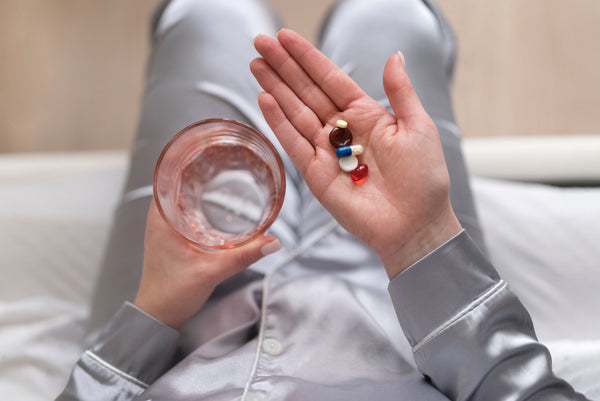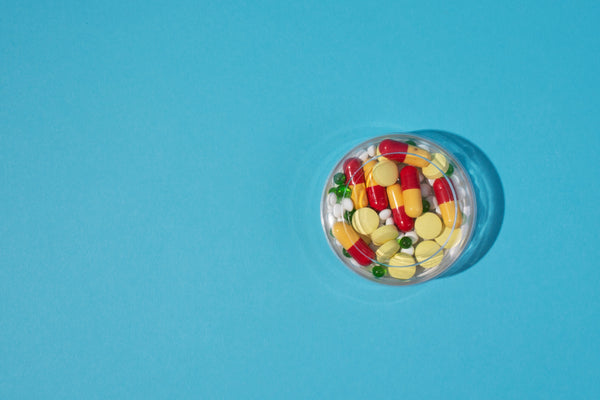Cholesterol—your body needs it, but too much of it can be a problem. When excess lipids build up in your arteries, they can lead to serious heart complications. Shockingly, nearly 86 million adults have cholesterol levels above 200 mg/dL, with anything over 240 mg/dL considered high. But what’s driving these numbers up—and more importantly, how can you take charge of your health? Let’s explore the key triggers behind high cholesterol and the most effective ways to manage it.
Understanding Cholesterol
Cholesterol is a waxy, fat-like substance that your liver produces and is essential for cell membranes, hormone production, and vitamin D synthesis. However, since cholesterol doesn’t dissolve in water, it needs help travelling through the bloodstream. This is where lipoproteins come in—particles made of fat and protein that transport cholesterol and triglycerides. The two main types are LDL (low-density lipoprotein), known as “bad” cholesterol, and HDL (high-density lipoprotein), the “good” cholesterol. High LDL levels can lead to serious health risks. Since high cholesterol has no obvious symptoms, regular check-ups are crucial to prevent complications like heart attacks and strokes.
Explore: What is Cholesterol and Why Is It Important for Your Health?
Factors leading to high cholesterol levels
Smoking
A 2020 review highlights that smoking lowers HDL (good) cholesterol while raising LDL (bad) cholesterol, likely due to nicotine entering the bloodstream [NIH]. Nicotine triggers catecholamine, a neurotransmitter that elevates bad cholesterol. Heavy smoking in a short time can lead to a sudden spike in cholesterol levels, increasing the risk of heart-related issues.
Alcohol
Alcohol triggers the release of triglycerides, a type of fat in the blood. When consumed in excess, the liver struggles to remove cholesterol, leading to higher LDL (bad) cholesterol levels. A 2017 study found that heavy alcohol intake rapidly lowers HDL (good) cholesterol while increasing LDL, raising the risk of heart-related issues [NIH].
Unhealthy Diet
When people consume saturated fats, their LDL levels can rise. Trans fats and high sugar diet can also contribute to higher LDL. These unhealthy fats are commonly found in dairy products, fatty cuts of meat, and packaged foods—especially snacks and desserts—making mindful eating essential for heart health [NIH].
Lack of Physical Activity
A 2020 study suggests that regular physical activity can boost HDL, the “good” cholesterol. A sedentary lifestyle, on the other hand, can lead to lower HDL levels. Exercise plays a key role in maintaining healthy cholesterol levels and supporting overall heart health [NIH].
Genetics
Some individuals inherit a genetic predisposition for high cholesterol, known as familial hypercholesterolemia. Without proper treatment, this condition can increase the risk of premature atherosclerotic heart disease. A 2022 analysis found that familial hypercholesterolemia affects 1 in 313 people worldwide [NIH].
Other Medical Conditions
Health conditions like diabetes and hypothyroidism can raise the risk of high cholesterol and its complications. Additionally, a 2019 analysis found that postmenopausal women tend to have higher cholesterol levels compared to those who haven’t experienced menopause, highlighting the impact of hormonal changes on heart health [NIH].
Preventive Measures
While you can’t control genetic risk factors for high cholesterol, lifestyle choices play a crucial role in managing it. A heart-healthy diet rich in fiber, lean proteins like fish and legumes, and whole grains can help. Opt for grilled, baked, or steamed foods while avoiding processed, sugary options.
Regular exercise, maintaining a healthy weight, and quitting smoking also contribute to better cholesterol levels. Research suggests that nutritional supplements may aid in lowering cholesterol levels.
However, many supplements on the market contain natural extracts and omega-3, which may not directly reduce cholesterol. According to the FDA, consuming 1,300mg of plant sterols, combined with a healthy diet and exercise, can help lower cholesterol by up to 33%.
Bottom line
High cholesterol is often called a “silent threat” because it has no symptoms, making it easy to overlook. Many people don’t realize they have it until complications arise. Follow your doctor’s recommendations for routine cholesterol screening post 20 years of age. Along with lifestyle changes can make a big difference! Eating a heart-healthy diet, staying active, and quitting smoking are key steps to managing cholesterol. If you're considering supplements, choose one with plant sterols, as they are clinically proven to support healthy cholesterol levels. Small changes today can lead to a healthier heart tomorrow


























